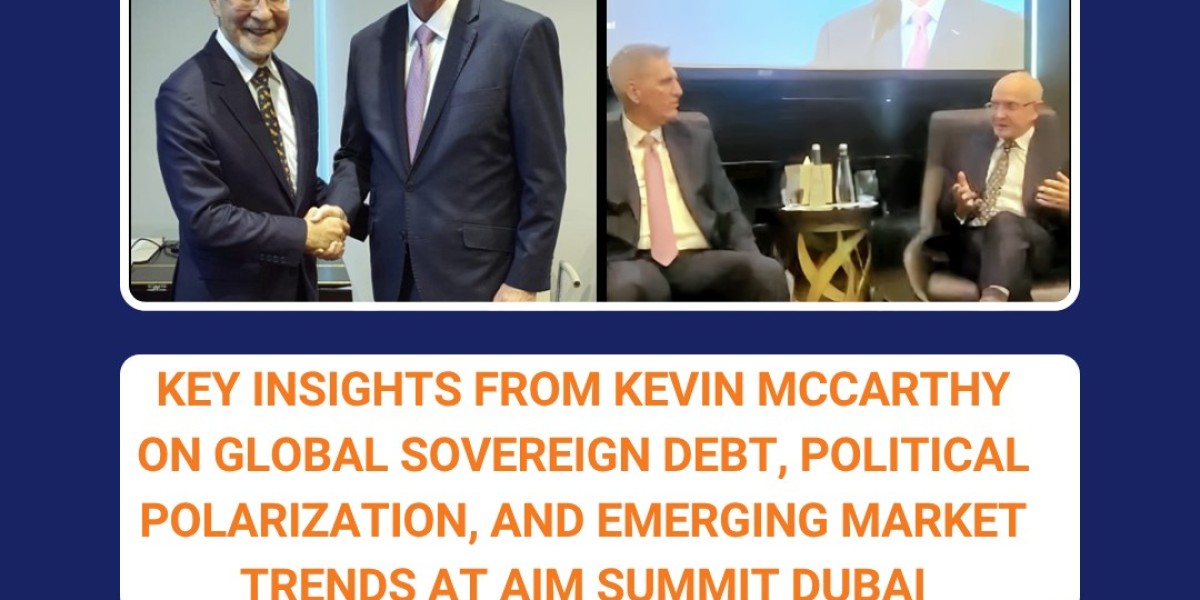In a time of complex international relations and shifting economic paradigms, the Boris Johnson AIM Summit served as a critical platform for high-level discussions on global leadership, geopolitical crises, and economic transformation. Hosted in Dubai, the summit brought together international leaders, policy experts, and thought influencers, including the former UK Prime Minister Boris Johnson and Gulf Analytica's President, David Gibson-Moore.
Boris Johnson Global Shifts Roundtable Discussion
The Boris Johnson Global Shifts Roundtable Discussion at AIM Summit provided valuable insights into pressing global issues. The forum, held under Chatham House Rule, explored topics such as the war in Ukraine, rising tensions in the Middle East, and China’s growing influence in world affairs.
Johnson shared his thoughts on how the global power balance is being redefined, urging Western democracies to adapt quickly. He emphasized that “strategic agility and cross-border cooperation” are essential in the current world order.
Boris Johnson Global Leadership Insights
Boris Johnson global leadership insights resonated throughout the summit. Drawing from his experience as Prime Minister, Johnson highlighted the importance of political resilience, decision-making under pressure, and maintaining national unity during crises.
He reflected on managing the COVID-19 pandemic and Brexit negotiations, both of which required firm leadership and international diplomacy. These reflections are especially relevant as countries now face similar global challenges, including economic slowdown and polarizing political climates.
Boris Johnson and David Gibson-Moore Roundtable: Bridging Politics and Economics
A major highlight of the event was the Boris Johnson and David Gibson-Moore roundtable, which offered a balanced conversation between political strategy and financial foresight. This session addressed not just geopolitics, but how economic decisions influence foreign policy.
Their dialogue revealed that leadership must go beyond politics—it must include economic clarity. Whether discussing UK-India trade relations or energy market stability, both leaders emphasized the integration of diplomacy and market understanding.
David Gibson-Moore on Middle East Crisis
David Gibson-Moore on Middle East crisis was a focal point of the summit. He articulated the direct link between regional instability and global economic uncertainty. His insights were based on decades of advisory experience in Gulf nations.
Gibson-Moore stressed the need for peace-building frameworks and transparent governance to safeguard regional investments and trade channels. With the Middle East being a critical energy hub, he warned that ongoing unrest could lead to global supply chain disruption.
Navigating Global Challenges with Boris Johnson
Navigating global challenges with Boris Johnson centered on preparing nations for the unpredictable. Johnson advocated for strengthening international institutions, embracing innovation, and reforming trade policies.
He pushed for reimagining global diplomacy through cooperation rather than confrontation. His proposed strategy involved increasing trade with Asia-Pacific partners and reducing overdependence on traditional allies, showcasing his Global Britain vision.
Key Takeaways from Boris Johnson Roundtable
Here are the key takeaways from Boris Johnson roundtable session:
Resilience in leadership is essential during international crises.
The UK must strengthen its role as a global economic partner post-Brexit.
Cross-party collaboration within nations enhances credibility abroad.
Innovation in defense, healthcare, and climate policy is crucial for long-term resilience.
David Gibson-Moore AIM Summit Leadership Insights
David Gibson-Moore AIM Summit leadership insights highlighted the economic uncertainties facing emerging markets and advanced economies alike. He pointed out the growing risks of sovereign debt and inflationary pressures, especially in developing economies.
His message was clear: economic leadership today must be proactive, transparent, and globally integrated. He encouraged investors and policymakers to embrace sustainability and governance reforms.
David Gibson-Moore’s Perspective on Global Shifts
In a broader reflection, David Gibson-Moore’s perspective on global shifts tied together the interconnected nature of global challenges. From climate volatility to shifting labor markets and AI integration, he believes the world is undergoing a deep transformation.
Gibson-Moore encouraged stakeholders to not only respond to change but anticipate and shape it. He highlighted that without policy foresight and institutional reform, many nations could face recurring crises.
Boris Johnson Insights on Global Shifts
In closing remarks, Boris Johnson insights on global shifts painted a picture of a dynamic world order in transition. He predicted a new era where emerging powers play a larger role, and global institutions must adapt or risk irrelevance.
Johnson also discussed the importance of democratic values, cultural diplomacy, and strengthening multilateral alliances as essential components of future global stability.
Conclusion: Looking Forward from the AIM Summit
The Boris Johnson AIM Summit served as a powerful platform for dialogue on global shifts. From leadership strategies to financial foresight, the event underscored that collaboration between politics and economics is more vital than ever.
Both Boris Johnson and David Gibson-Moore left attendees with a roadmap to navigate uncertainty: strengthen institutions, embrace innovation, and foster global dialogue.
FAQs
Q1. What were the top highlights from the Boris Johnson AIM Summit?
The summit addressed global leadership, economic recovery post-COVID, the Middle East crisis, and evolving trade policies.
Q2. What is Boris Johnson’s vision for Global Britain?
Johnson envisions a UK that is globally active, economically competitive, and a strong player in international trade, particularly in Asia-Pacific regions.
Q3. Why is the Middle East crisis significant to global economics?
The Middle East remains crucial due to its energy exports. Instability in the region affects global supply chains and investor sentiment.
Q4. What role did David Gibson-Moore play at the summit?
He provided economic insights, particularly on emerging markets, debt sustainability, and institutional reform.
Q5. How can nations navigate global shifts effectively?
By building resilient economies, promoting cross-border collaboration, and adapting quickly to geopolitical and technological changes.







